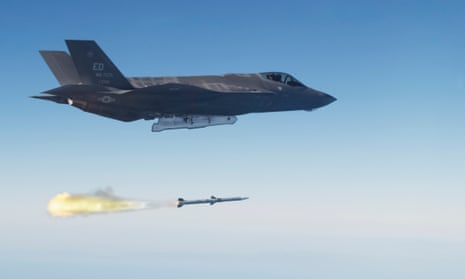One year ago this week, I was sitting in a cramped hotel room with 15 other staffers in Las Vegas for Bernie Sanders’ first debate for the presidential nomination. The question came from CNN: “What is the greatest national security threat?” Pundits criticized and mocked him for weeks after he answered “climate change”. But he was right.
And it’s not just Sanders pointing out the imminent threat posed by climate change to global and national security. CIA analysts and our nation’s military strategists are rightfully naming it as a contributor to refugee flows, the spread of disease, and conflicts over basic resources like food and water.
In 2014, 17.5 million people were displaced by climate-related disasters. Those numbers will continue to rise dramatically in the coming decades, according to climate displacement program manager Alice Thomas of Refugees International.
Our nation’s defense officials know global warming’s destructive forces could undermine fragile governments in unstable regions of the world where extremist ideologies can take root. Yet mainstream Republican avoidance of reality on the science of climate change impedes the necessary reassignment of resources to meet the challenges posed.
Now a new report from the Institute of Policy Studies provides the most accurate calculation of government spending on climate security to date. The picture isn’t pretty. We’re spending 28 times as much on military security than climate security. A public sector investment of $55bn per year is required to meet the challenge, according to the study. With $21bn in the 2017 budget, a shortfall of $34bn is left.
That may seem like an insurmountable hill to climb. It’s not! As the IPS report points out, plenty of money lies untouched in the nation’s bloated military budget.
The F-35 fighter plane program is a prime candidate for big cuts. It’s the most expensive weapon ever designed, complete with massive cost overruns. The sad cherry on top: the military admits that this plane just doesn’t work. If we turned back now, IPS says we could build enough offshore wind farms to power 320,000 homes for millions of people.
Savings from gutting a Navy program designed to build close-to-shore combat ships would provide enough funds to retrain more than 150,000 coal industry workers. The ships have been plagued with mechanical errors. Our own Government Accountability Office says the “actual lethality and survivability performance of LCS is still largely unproven through realistic testing”. Others have called the ships an outright “waste”. Retraining and redistributing our fossil-fuel workforce to green jobs would be a welcome reprioritization.
Congress could harness additional savings by reducing service contracting and canceling other wasteful or unnecessary weapons programs. But one party largely stands in the way. Republicans are hell-bent on leading our country down an unforgivable road with grave consequences. Their party’s nominee for president believes that global warming is a hoax engineered by the Chinese. That would be comical if it weren’t so dangerous.
Rich Americans justify inaction by dismissing climate change as a far off problem that will affect others. But climate change is here and now. And while the sharpest edge of its destructive forces will sadly hurt people of color and lower-income the hardest, we’re all in deep trouble.
In an unusually forceful public service announcement, The Weather Channel this week warned Floridians that Hurricane Matthew would lead to a heartbreaking loss of life. Florida governor Rick Scott said: “This storm will kill you.” These un-natural weather occurrences are becoming more and more frequent.
My home state of California faces its worst drought in 1,200 years. When I traveled home for the holidays two years ago, I saw the devastating impact of climate change firsthand. Where boats once sat docked in my hometown marina, only dust remained. Climate scientists are telling us that the United States is not immune to the instability and infighting that will occur when populations are forced to fight over food and water. They need only look to California for confirmation, where northerners and southerners argue fiercely over water access.
The only practical solution to curb unrest, suffering and death here and abroad is a massive redistribution of government money. This week’s new report from IPS serves as a thoughtful blueprint.
Republicans should take heed of former GOP President Dwight Eisenhower’s words of wisdom:
Every gun that is made, every warship launched, every rocket fired signifies, in the final sense, a theft from those who hunger and are not fed, those who are cold and are not clothed. This world in arms is not spending money alone. It is spending the sweat of its laborers, the genius of its scientists, the hopes of its children.
Let’s steward our resources wisely. Let’s choose climate over combat.
